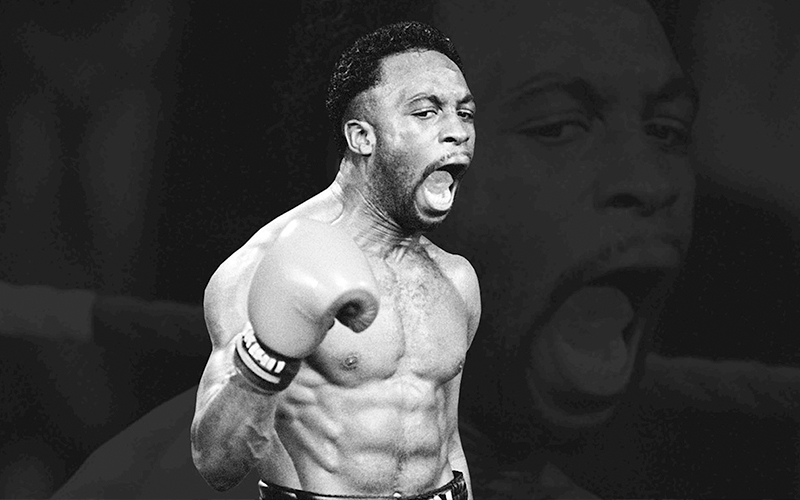10 Things You Didn’t Know About 'The Dark Destroyer' Nigel Benn
Two weight-world champion and British boxing legend Nigel Benn is preparing to head back to the ring for the first time in 23 years in order to get closure on his career.
The decision to box again at the age of 55 has caused a lot of controversy so BBN decided to dig up some interesting facts about ‘The Dark Destroyer’:
1. Born Nigel Gregory Benn on January 22, 1964 in Ilford, London, to humbling beginnings, his father Dixon had arrived in the UK from Barbados just eight years earlier and wife Mina joining him after a year. Nigel was the sixth of seven children, all boys. His family were all very sporting and his talented cousin went on to play for Manchester Utd and England, Paul Ince.
2. His older brother Andy tragically died after falling out of a window when Nigel was just eight-years-old and it sent him off the rails for many years to come. He admits to changing when his brother died and carried the anger and anguish with him for decades, choosing to fight whenever and wherever he could, often ending up in police stations.
3. Nigel chose to join the army to change his fate, where he admits to expecting to ending up in prison or in a coffin if he continued on his reckless path.
4. Nigel served three years in Germany and 18 months in Northern Ireland. That was where he first took up boxing with the idea being that if you are good at a sport, “You haven’t got to spend all of your time doing that soldier business.” In his own words.
5. He went undefeated as a welterweight in the First Battalion of The Royal Regiment of Fusiliers between 1982-84 and won titles all the way up to heavyweight.
6. As an amateur, he joined West Ham Boxing Club, where he won 41 from 42 bouts, the single loss was avenged, however. It was when he won the ABA middleweight championship in 1986 that he evened the score with Rod Douglas in the semi-finals, who famously fought Herol Graham for the British title at Wembley Arena in 1989. Their first fight in 1985 was screened live on BBC Grandstand and was regarded as one of the greatest ABA finals ever.
7. After Benn beat Johnny Melfah in the ABA final to win the national amateur middleweight championship, he dreamed of representing his country at the 1986 Commonwealth Games in Glasgow but old foe Douglas was picked ahead of him, largely due to Benn’s aggressive style not suiting their amateur ethos.
8. He turned pro instead and took Burt McCarthy as his manager. His initial thoughts were to earn a living from the sport with the ambition to win a British title someday. He won his first 22 fights by knockout winning the Commonwealth middleweight title and defending it three times.
9. It was when he met with the intelligent Michael Watson in 1989 that his ferocious style was used against him. He said, “I went out all guns blazing, expecting him to go, but it just didn’t happen. I came back to my corner at the end of the fifth round and I was exhausted.”
A bushed Benn was sent to the canvas in the sixth stanza and misjudged his timings, rising to his feet but was counted out by referee John Coyle, experiencing his first ever professional defeat.
10. Benn went to America where Bob Arum had praised him as: “The most exciting fighter in the world.” The Briton went on to win the WBO middleweight world title which he concede to ghis greatest ring rival Chris Eubank Jr in his second defence in 1990. He then became a two-weight world champion when he won the WBC super-middleweight strap in 1992, which he defended an astonishing 10 times (nine times successfully, losing on his 10th defence to Thulani Malinga).

